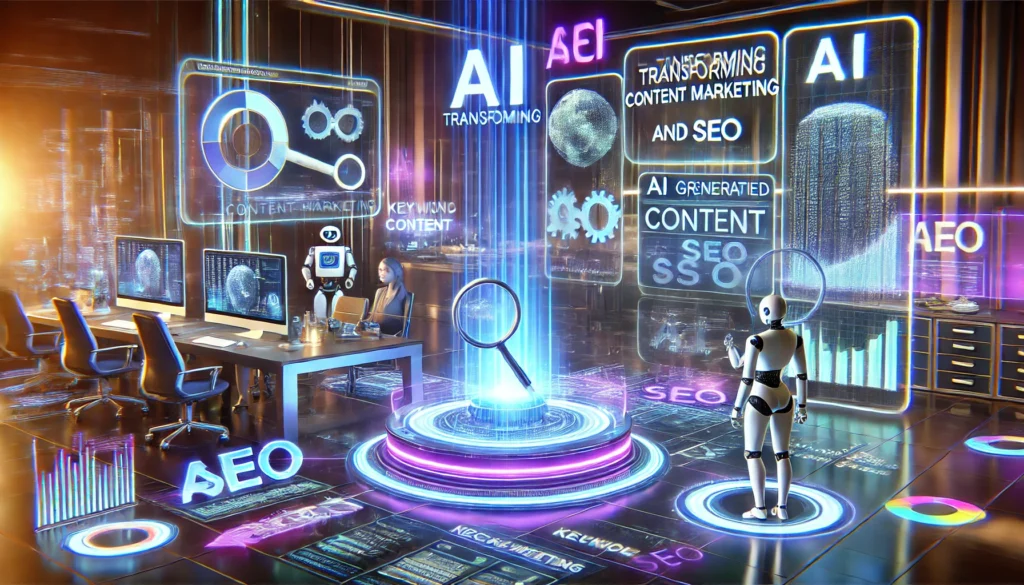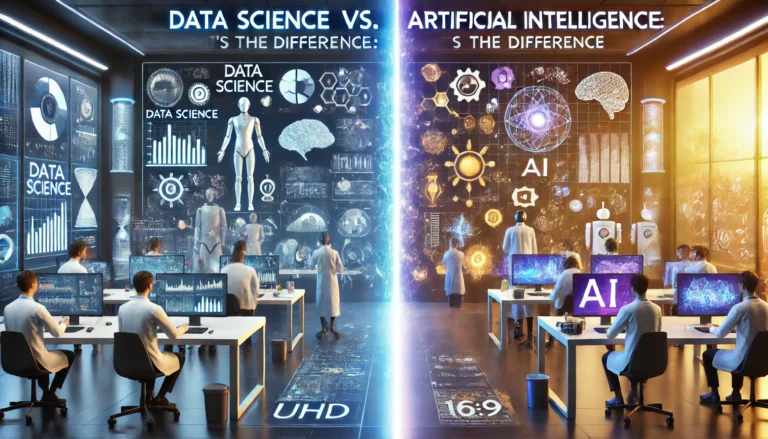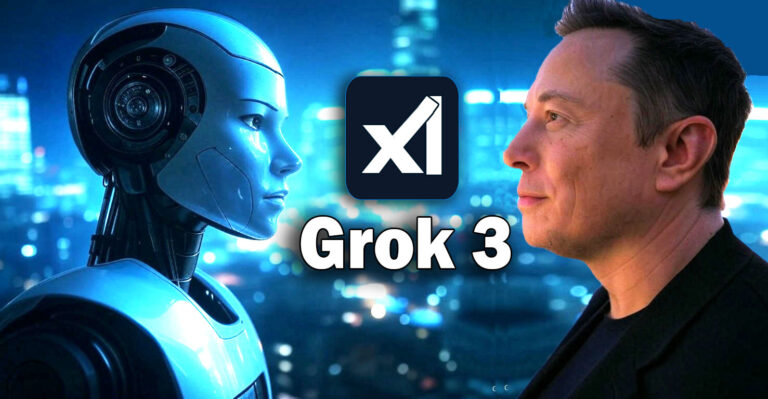
Introduction
Artificial Intelligence (AI) is no longer a futuristic concept. It is deeply embedded in our daily lives, revolutionizing industries across the board. Among the fields witnessing a significant transformation is content marketing and Search Engine Optimization (SEO). AI technologies, including machine learning, natural language processing, and predictive analytics, are reshaping how marketers create, optimize, and distribute content. This article explores how AI is transforming content marketing and SEO, delving into its benefits, challenges, and future implications.
The Role of AI in Content Marketing
AI in content marketing enables marketers to understand their audience better, create tailored content, and optimize the user journey. Let’s examine some key areas where AI is making a difference:
- Audience Insights
AI tools analyze massive datasets, uncovering deep insights into customer behavior, preferences, and pain points. Platforms like Google Analytics and HubSpot leverage AI to provide marketers with actionable insights, enabling data-driven decision-making. - Content Creation
AI-powered tools, such as GPT-3 and Jasper AI, assist in generating high-quality content, including blog posts, ad copy, and product descriptions. These tools save time, reduce costs, and maintain a consistent brand voice. - Personalization
Personalization is crucial in modern marketing. AI enables hyper-personalized content delivery, ensuring the right message reaches the right audience at the right time. Recommendation engines, such as those used by Netflix or Amazon, are prime examples. - Predictive Analytics
AI predicts future trends and audience behavior by analyzing historical data. This helps marketers proactively design strategies that align with emerging trends. - Content Optimization
AI tools like Grammarly and Hemingway Editor optimize content for readability, grammar, and tone. Similarly, SEO tools like Surfer SEO and Clearscope help create content that ranks well on search engines.
AI and SEO: A Perfect Match
SEO is one of the most dynamic fields in digital marketing, and AI is redefining its landscape. Here’s how AI is influencing SEO:
- Keyword Research
AI streamlines keyword research by analyzing search trends, competitor strategies, and user intent. Tools like SEMrush and Ahrefs use AI to identify high-performing keywords and phrases. - Content Optimization for Search Engines
AI tools evaluate content against search engine algorithms, suggesting improvements for better rankings. Platforms like Yoast SEO and Rank Math provide real-time feedback on keyword usage, meta descriptions, and more. - Voice Search Optimization
The rise of voice assistants like Alexa and Google Assistant has made voice search optimization a priority. AI helps optimize content for natural language queries, ensuring better visibility. - Automation of Repetitive Tasks
AI automates mundane tasks like meta-tag generation, alt-text creation, and internal linking, freeing up marketers to focus on strategy and creativity. - Improved User Experience (UX)
Search engines prioritize websites with excellent UX. AI analyzes user behavior, suggesting improvements to website design, navigation, and content structure. - Local SEO
AI assists businesses in optimizing for local searches by analyzing local trends, reviews, and user queries, improving visibility in specific geographic areas.
Benefits of Using AI in Content Marketing and SEO
- Efficiency and Productivity
AI automates repetitive tasks, allowing marketers to focus on strategy and creativity. - Enhanced Accuracy
Machine learning algorithms reduce errors in data analysis and content creation, ensuring consistent quality. - Cost-Effectiveness
AI-driven tools reduce the need for extensive manual labor, cutting operational costs. - Scalability
AI enables marketers to handle large-scale campaigns effortlessly, reaching broader audiences. - Data-Driven Insights
AI uncovers actionable insights from complex datasets, driving informed decision-making.
Challenges of Implementing AI in Content Marketing and SEO
While AI offers immense potential, its adoption comes with challenges:
- High Initial Investment
Implementing AI tools can be costly, especially for small businesses. - Learning Curve
Marketers must acquire new skills to leverage AI tools effectively. - Data Privacy Concerns
Collecting and analyzing user data raises ethical and legal issues. - Over-Reliance on Automation
Excessive dependence on AI can stifle creativity and human intuition. - Algorithm Bias
AI algorithms can perpetuate biases present in training data, leading to unfair outcomes.
The Future of AI in Content Marketing and SEO
The future of AI in content marketing and SEO looks promising. As technology advances, we can expect:
- Greater Integration
AI will become seamlessly integrated into marketing platforms, enhancing user experiences. - Real-Time Optimization
Advanced AI tools will provide real-time insights and optimization recommendations. - Predictive Content Creation
AI will predict content types and formats that resonate with target audiences. - Improved Natural Language Processing
Enhanced NLP models will enable AI to understand and generate human-like content more effectively. - Ethical AI Practices
Stricter regulations and ethical guidelines will ensure responsible AI use.
Conclusion
AI is undeniably transforming content marketing and SEO, offering unparalleled opportunities for efficiency, personalization, and data-driven strategies. While challenges exist, the benefits far outweigh the drawbacks. By embracing AI, marketers can stay ahead of the curve, delivering exceptional value to their audiences. The future belongs to those who adapt and innovate, making AI an indispensable ally in the digital marketing landscape.




